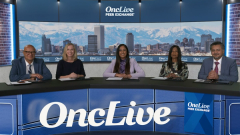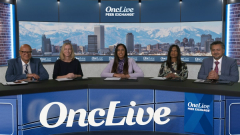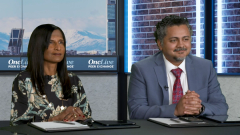
Potential Role for CAR T-Cell Therapy in MM at Early Relapse
Krina Patel, MD, reviews data from the CARTITUDE-4 and KarMMa-3 studies and shares perspectives on a potential role for CAR T-cell therapy at early relapse.
Episodes in this series

This is a video synopsis/summary of a Peer Exchange featuring Krina K. Patel, MD, MSc; Amrita Krishnan, MD; Caitlin Costello, MD; Saad Z. Usmani, MD, MBA, FACP; and Rafat Abonour, MD.
The discussion focuses on recent phase 3 trial data for B-cell maturation antigen (BCMA)–directed chimeric antigen receptor (CAR) T-cell therapies in earlier lines of therapy for multiple myeloma (MM) and how this may shape incorporation into clinical practice. The CARTITUDE-4 and KarMMa-3 trials evaluated ciltacabtagene autoleucel and idecabtagene vicleucel, respectively, in heavily pretreated patients who were mostly lenalidomide-refractory, demonstrating significantly improved progression-free survival over standard therapies.
While promising, there are reservations around widely adopting CAR T-cell therapy at first relapse until long-term benefit is proven. However, for high-risk patients relapsing within 1 to 2 years of diagnosis who rapidly exhaust available therapies, earlier CAR T-cell therapy may be preferred over trying additional conventional salvage regimens with marginal benefit. Still, triaging will be necessary given manufacturing constraints on cell therapy availability. Thoughtful patient selection that balances risk, available therapy options, and logistics is advocated.
Video synopsis is AI-generated and reviewed by OncLive® editorial staff.










































